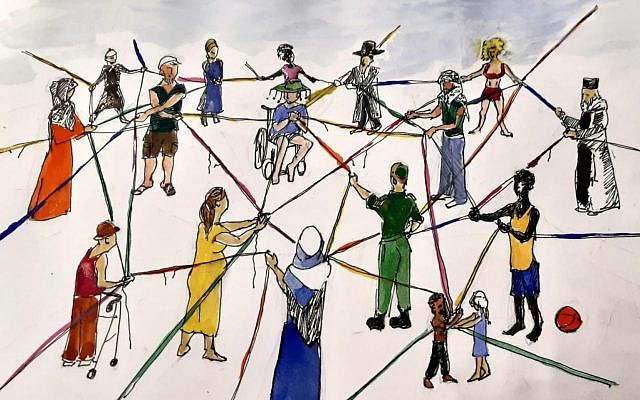
For many years in Israel, the term “coexistence” was used to describe the need for Jews and Arabs to live together. While many people still use it, over the years it has become clear that this term is not quite sufficient. The fabric of Israeli society is intricate and requires a more in-depth description.
About seven years ago, when President Rivlin took office, he gave his first major speech, now known as the “Tribes” speech. He maintained that Israel is comprised of four main tribes: secular Israelis, religious Zionists, ultra-Orthodox Israelis, and Arab Israelis. He emphasized the need for greater collaboration among these groups. Later he added a fifth tribe, Diaspora Jewry, and created the Israeli Hope campaign to promote this concept.
Around the same time, Greater MetroWest reorganized its Israel and Overseas structure and fine-tuned its priorities, and thus Global Connections was born. We chose Shared Society in Israel as part of our main agenda and dedicated one of our platforms, known as Kedma, to it. We adopted President Rivlin’s “Tribes” concept and began to use the term “shared society” in a more comprehensive way. We included integration of other groups such as Ethiopian Israelis and the ultra-Orthodox in the work of this platform, and of course Jewish pluralism was important as well. Today, our vision of shared society is executed via our Partnerships Network with JAFI, a unique and successful model that includes as partners both a non-Jewish Israeli community (Hurfeish) and a non-Israeli Jewish community (Cherkassy).
To support our vision of shared society, we provide direct support for various sectors of Israeli society, to integrate them into the mainstream; maintain memberships in several relevant coalitions, the only North American Federation to do so; support dialogue and cooperation among the tribes; and participate in community initiatives based on our own global community and Partnerships Network. We believe that shared society is a national priority, and a Jewish value, neither “right” nor “left” politically. The future health of our Israeli society relies on the ability of all citizens to live together in tolerance while maintaining their unique identities.
For more on shared society, read this blog post by Mike Prashker, Strong Webs of Shared Israeli Citizenship.

